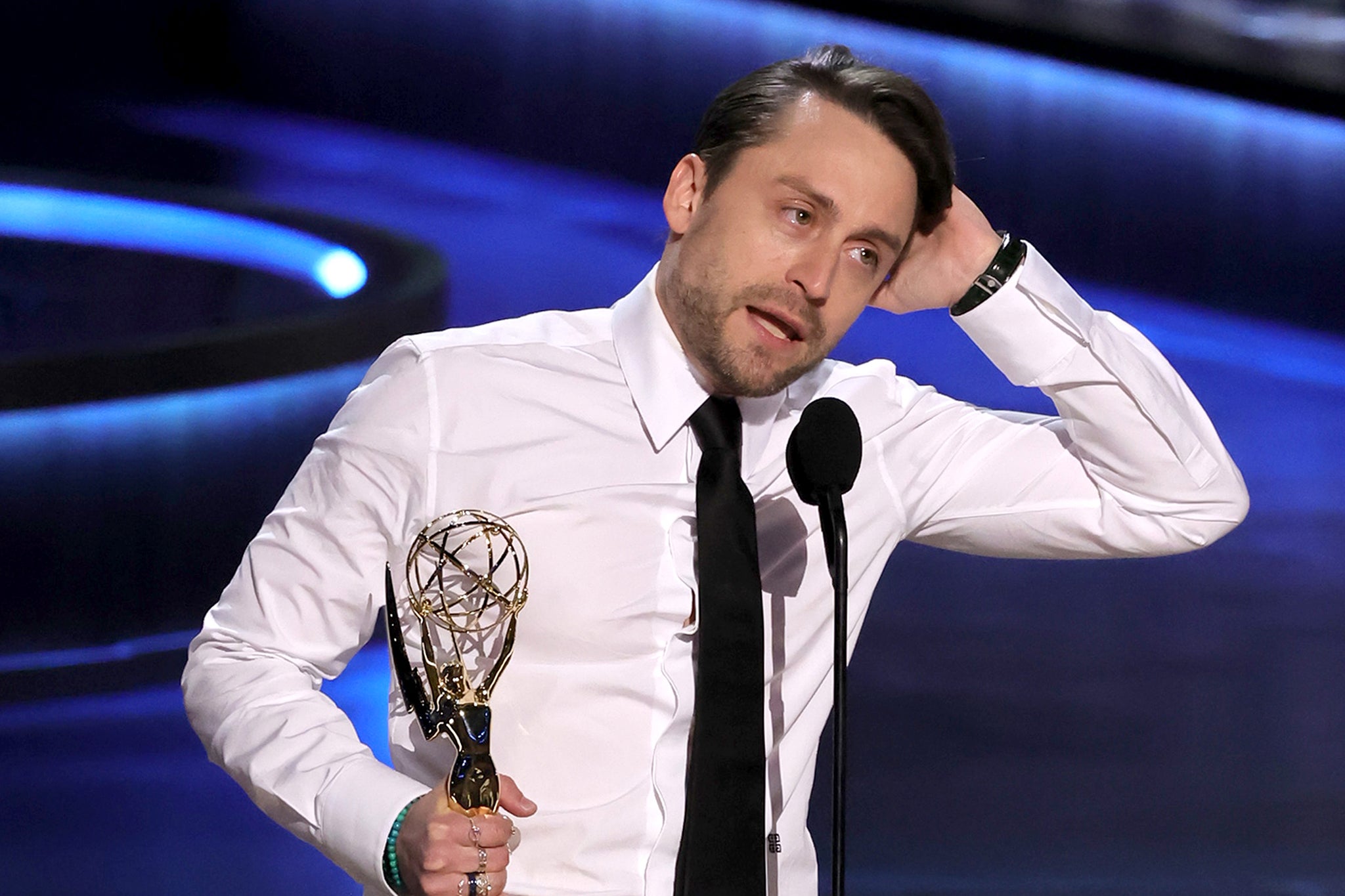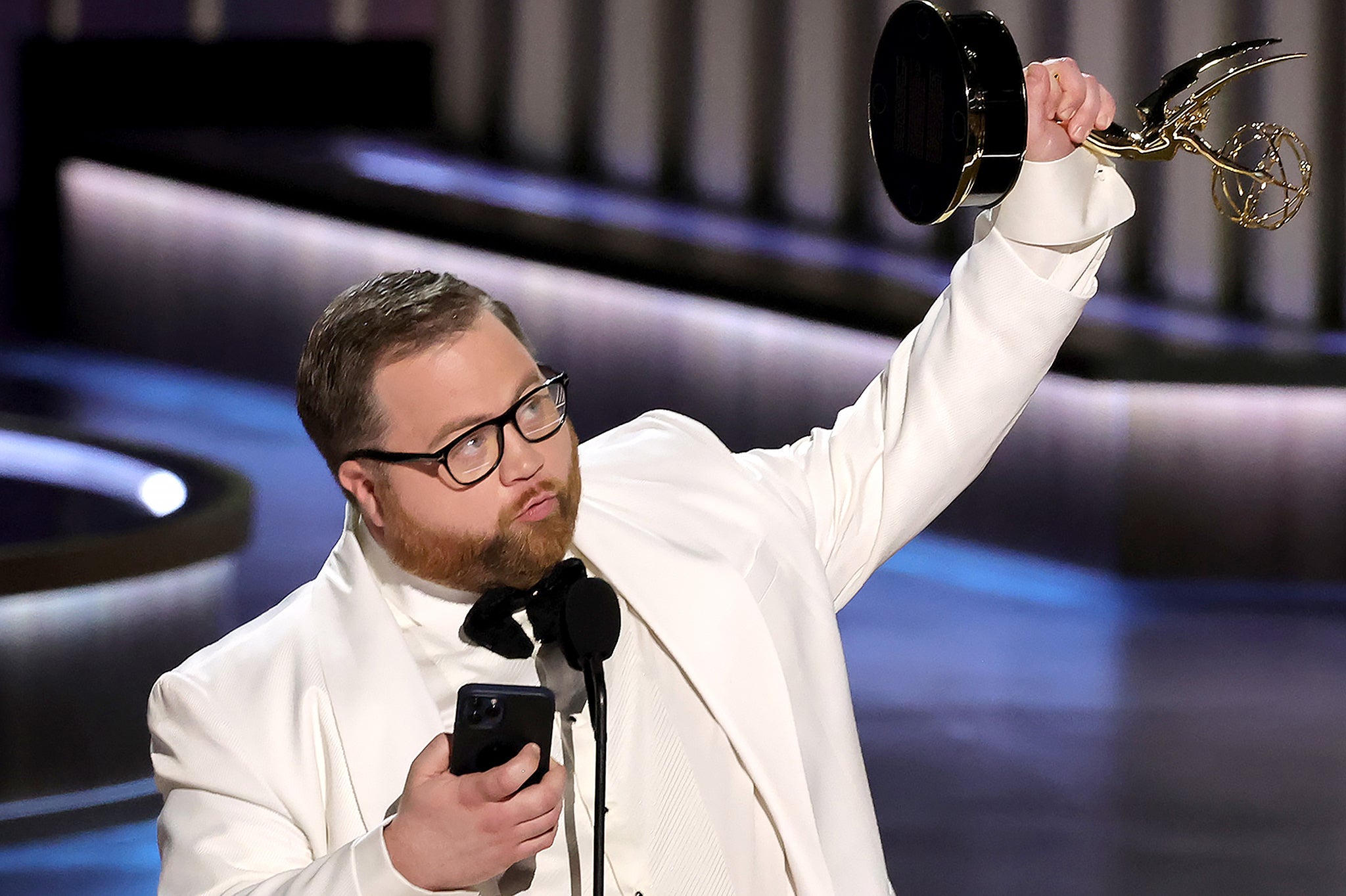Hollywood may be out of touch – but their Emmy awards speeches made them human
Fewer people than ever are watching awards shows, but as last night’s Emmys proved – thanks to surprise on-stage kisses and unexpected rapping – they are the best place for otherwise extraordinary celebrities to appear blessedly normal, writes Nick Hilton


Your support helps us to tell the story
From reproductive rights to climate change to Big Tech, The Independent is on the ground when the story is developing. Whether it's investigating the financials of Elon Musk's pro-Trump PAC or producing our latest documentary, 'The A Word', which shines a light on the American women fighting for reproductive rights, we know how important it is to parse out the facts from the messaging.
At such a critical moment in US history, we need reporters on the ground. Your donation allows us to keep sending journalists to speak to both sides of the story.
The Independent is trusted by Americans across the entire political spectrum. And unlike many other quality news outlets, we choose not to lock Americans out of our reporting and analysis with paywalls. We believe quality journalism should be available to everyone, paid for by those who can afford it.
Your support makes all the difference.Last night, the Peacock Theater in Los Angeles was lit up with hundreds of dazzling smiles and perma-tanned visages. Assembled across the auditorium like a tidal wave of couture sweeping towards the stage, the great and good of the television industry gathered to watch host Anthony Anderson conduct proceedings at the 75th Primetime Emmys, which had been delayed from September due to strike action among American creatives.
The halcyon days of awards shows are – it seems generally accepted – over. Think back to the 1998 Oscars ceremony, say, where 55 million viewers tuned in live to see Titanic triumph over Good Will Hunting, or the 1986 Emmys, where a 35-million-strong audience watched a shindig hosted by David Letterman and Shelley Long. Recent editions of these shows have been far less of an event: the 2021 edition of the Oscars hit a record nadir of 10 million viewers, while last year’s Emmys staggered towards the 6 million mark. Thus the televisual event itself has been transmogrified, turned from a three-hour endurance test into a series of human moments, broken into bitesize chunks, which go viral on social media. And nothing does better than a good acceptance speech.
“Don’t pick it up,” Kieran Culkin instructed Calista Flockhart, as she handed him the best actor (drama) Emmy while he was flinging his jacket to the floor. “I couldn’t do the button; I wasted all my time hugging everybody.” If you could coach someone towards acceptance speech virality, it would start here, with the approach to the microphone. It is where people increasingly look for signposts of authenticity (though I suspect that cartwheeling to the stage, like Alan Alda in 1979, would still do well on TikTok). And that authenticity tends to be there: whether it’s Ayo Edebiri foisting her clutch and phone into someone’s outstretched hands, or Niecy Nash-Betts being guided to the stage, like someone carrying a trifle on the Underground. For a moment, they’re almost relatable.
Culkin is a master of this well-calibrated verisimilitude, but at last night’s Emmys he was playing in the big leagues. The cast and crew of The Bear – a show about a ragtag brigade at a Chicago sandwich shop that has also become an unexpected insurgent in the prestige television stakes – were out in full force. As the team flooded the stage to pick up the gong for best comedy series, Matty Matheson (a Canadian chef turned actor, who is not, it’s fair to say, the show’s lead actor) grabbed the mic. “I just wanted to thank restaurants,” he told the assembled Hollywood masses, only to be interrupted by Ebon Moss-Bachrach – himself a winner for best supporting actor (comedy) – swooping in for a full-mouth kiss. Coming up for air after a full seven seconds, Matheson picked up precisely where he left off. “I just love restaurants so much!”
It’s not merely the spontaneity that does well with audiences accustomed to short-form video. Paul Walter Hauser – an acting winner for his role as serial killer Larry Hall in Black Bird – went in the opposite direction, reading a prepared rap/performance poem off his phone (and extolling the virtues of Richard Jenkins’s performance in The Visitor). “Thank you to the voters and the TV academy/ Thank you mum and dad, you nurtured what I had in me.” If that sounds remotely cringe-inducing, it does a discredit to Hauser’s deliciously deadpan delivery, complete with the contradictory combo of bratty gum chewing and the emotional tell of a shaking hand.
False modesty will also win you no favours, though it has long been the default (perhaps Sally Field is to blame for her famous “You really like me!” speech at the Oscars). “You know who I want to thank?” Niecy Nash-Betts asked the audience, clutching the supporting actress (limited series) statuette in her hand. “I want to thank: me.” This was Nash-Bett’s first win from four nominations over the years (after recognition for When They See Us and Getting On) – nobody was going to blame her for enjoying her moment. She’s right of course, and cynical audiences increasingly recognise the rambling lists of thank yous for what they often are: contractual obligations, rather than genuine, heartfelt gratitude.

This environment, where authenticity rules, can sap some of the political urgency out of awards ceremonies. “If you do win an award tonight”, Ricky Gervais told attendees of the 2020 Golden Globes, “don’t use it as a platform to make a political speech – you’re in no position to lecture the public about anything.” Love him or loathe him, Gervais was right that audiences no longer seem to connect with doom-laden political speechifying from Hollywood elites. Which isn’t to say that a political point can’t be made more subtly. “Knowledge is power,” proclaimed RuPaul, holding his Emmy, a fluorescent pink cravat billowing, somehow, in the windless auditorium. “If someone tries to restrict your access to power, they are trying to scare you.”
But the images that will endure from the 2024 Emmys – and provide a roadmap, as awards season heads towards its 10 March conclusion at the Oscars – are of beautiful, privileged people rendered momentarily fragile and human by the moment they’re living through. Seeing the extraordinary rendered briefly ordinary is like seeing the negative of a film strip, and audiences, dining on the televisual three-course meal or nibbling the social media tapas, eat that up.
Join our commenting forum
Join thought-provoking conversations, follow other Independent readers and see their replies
Comments